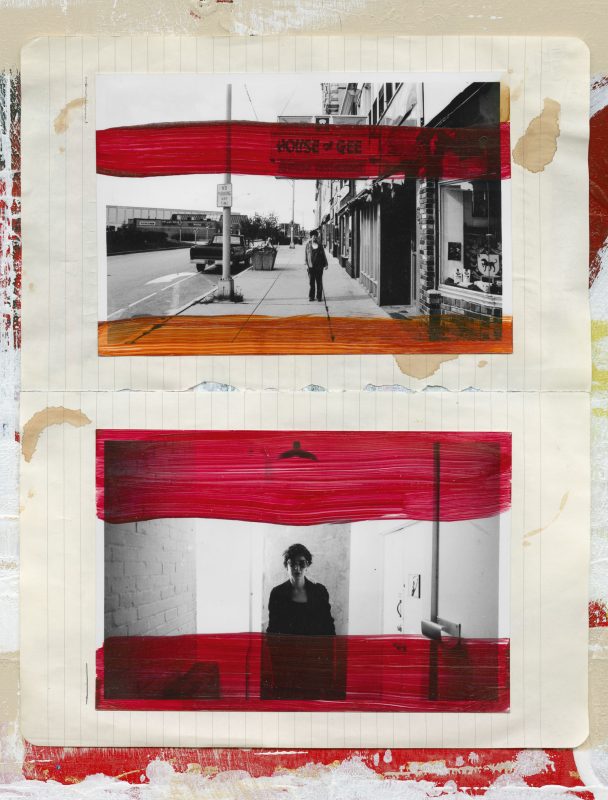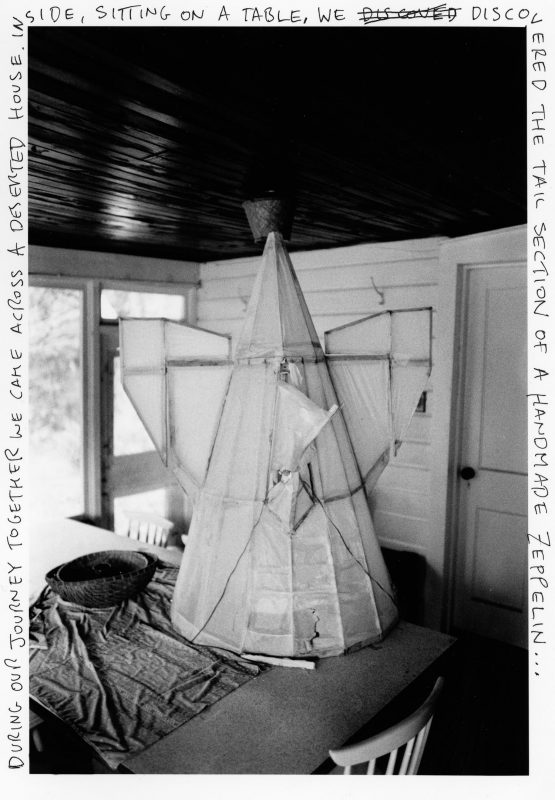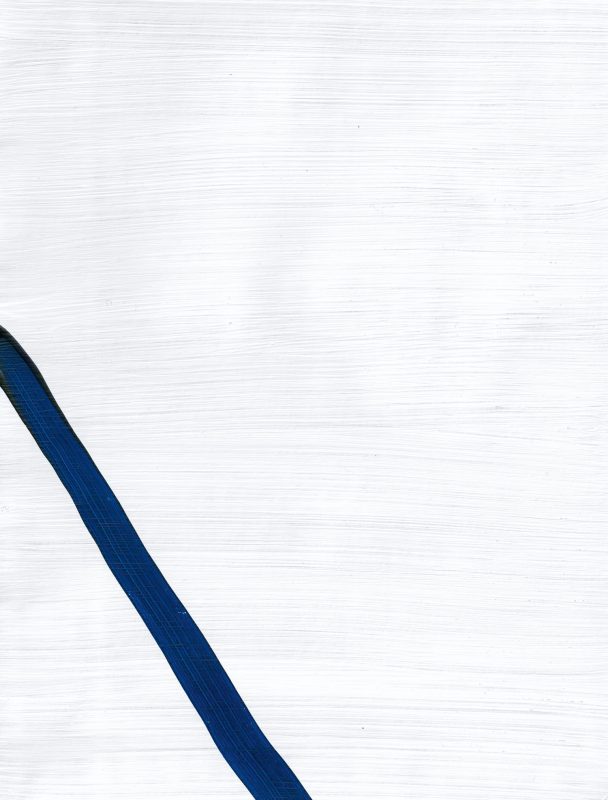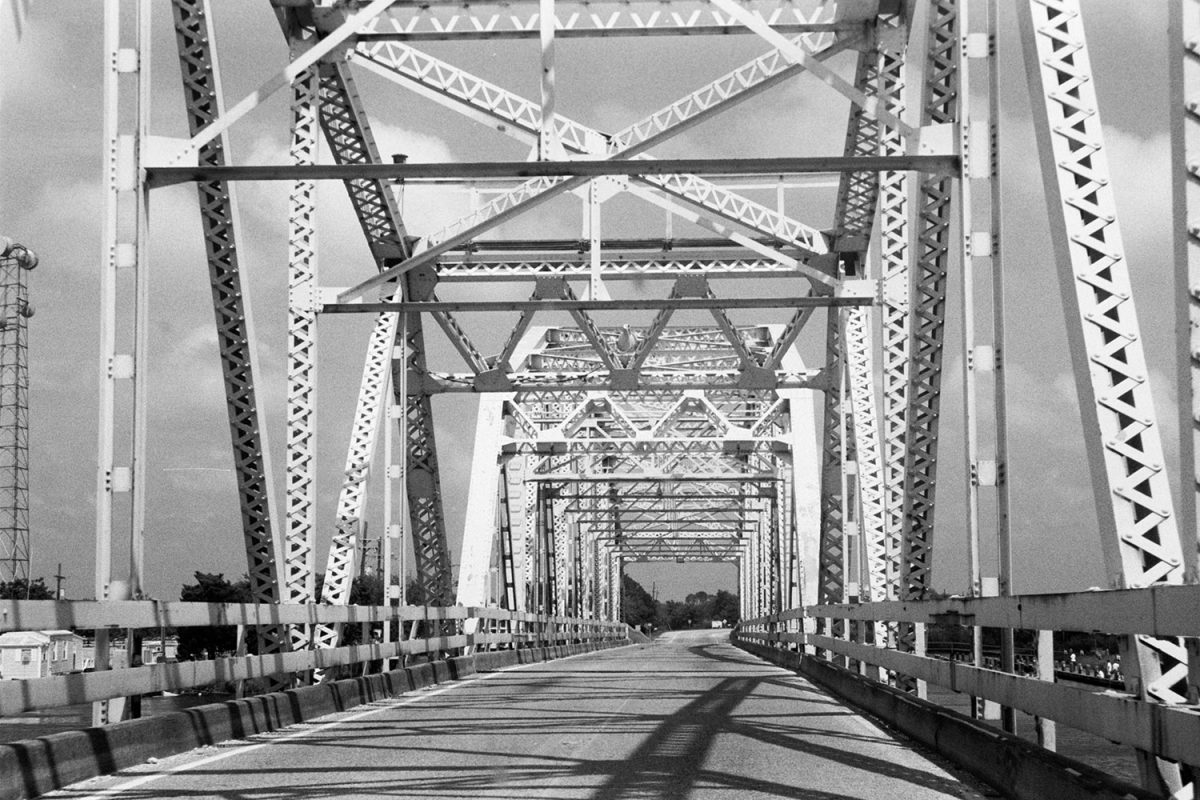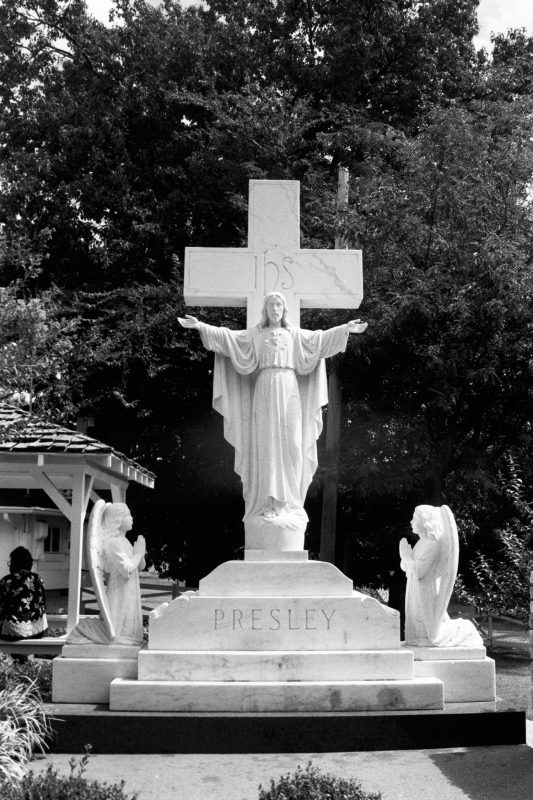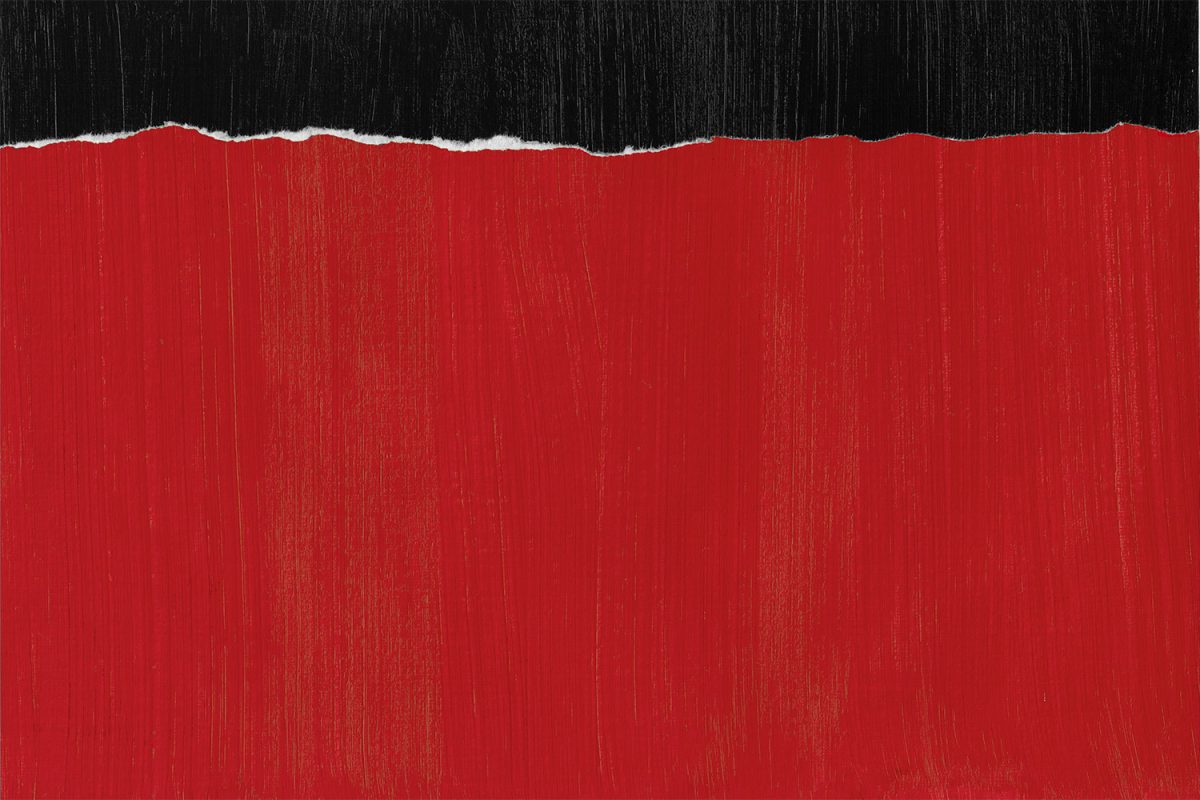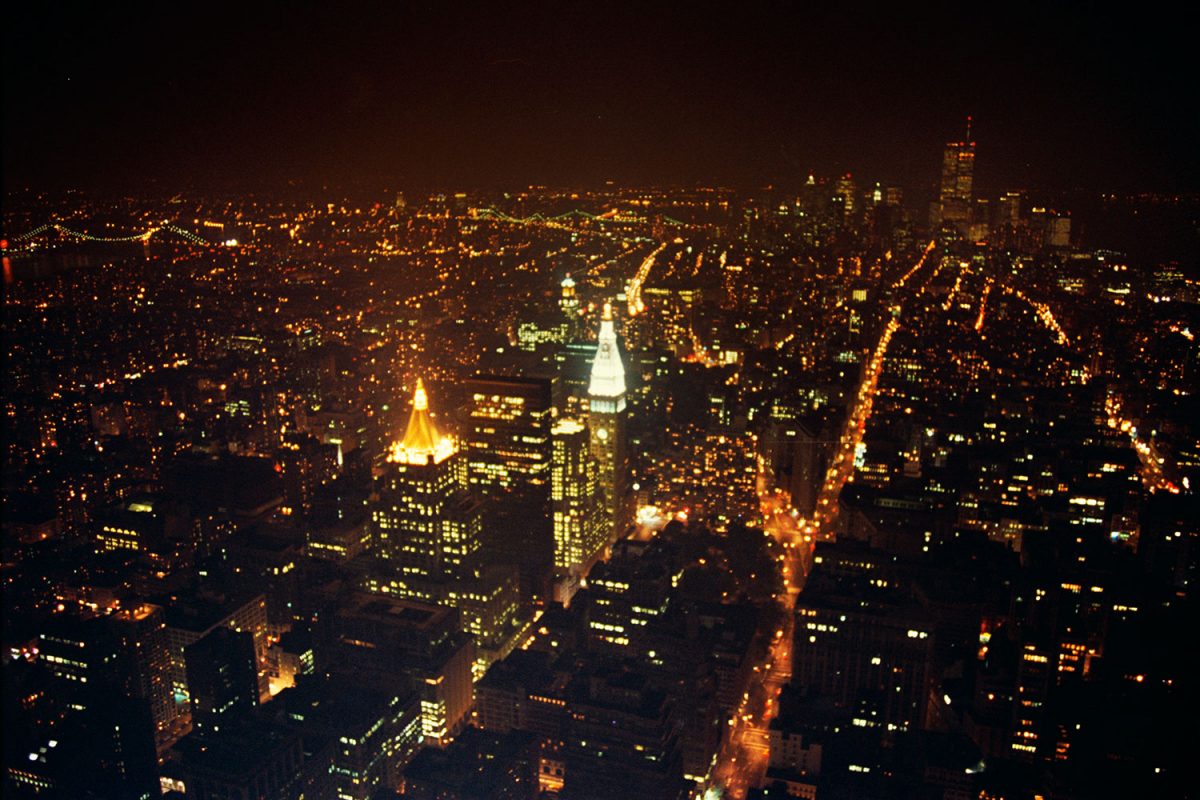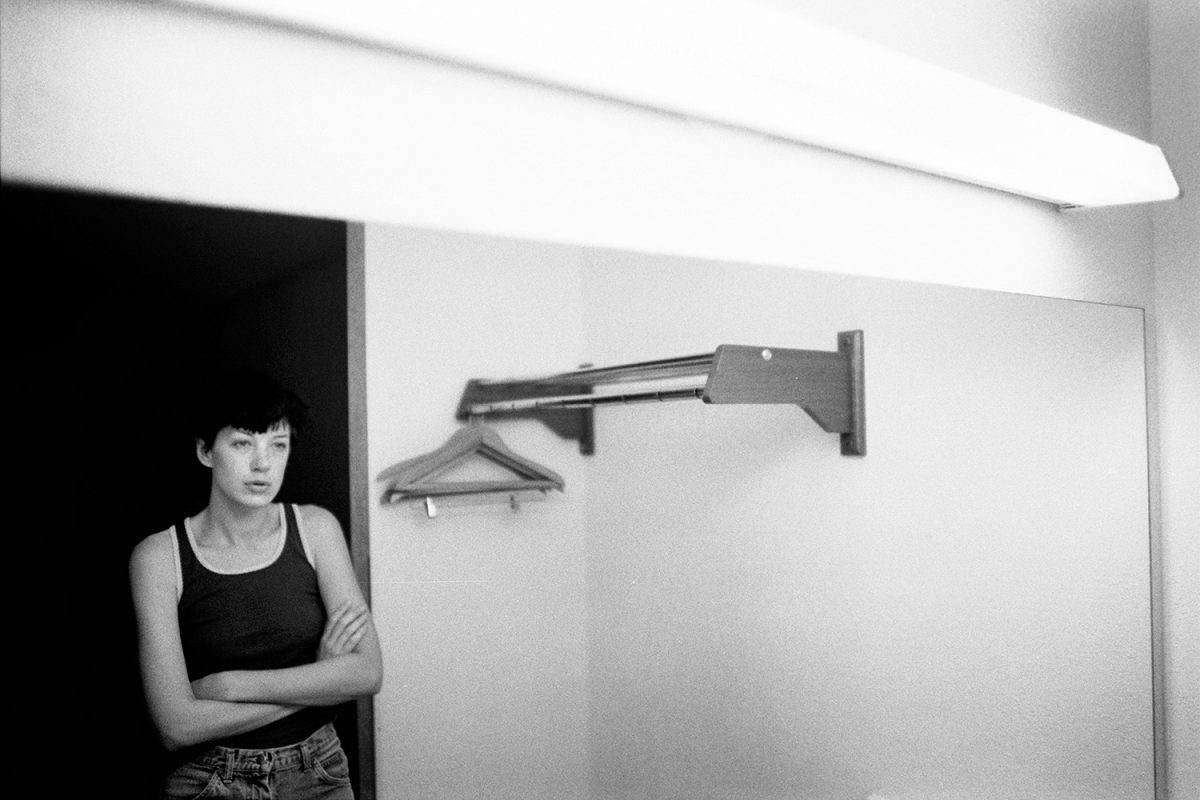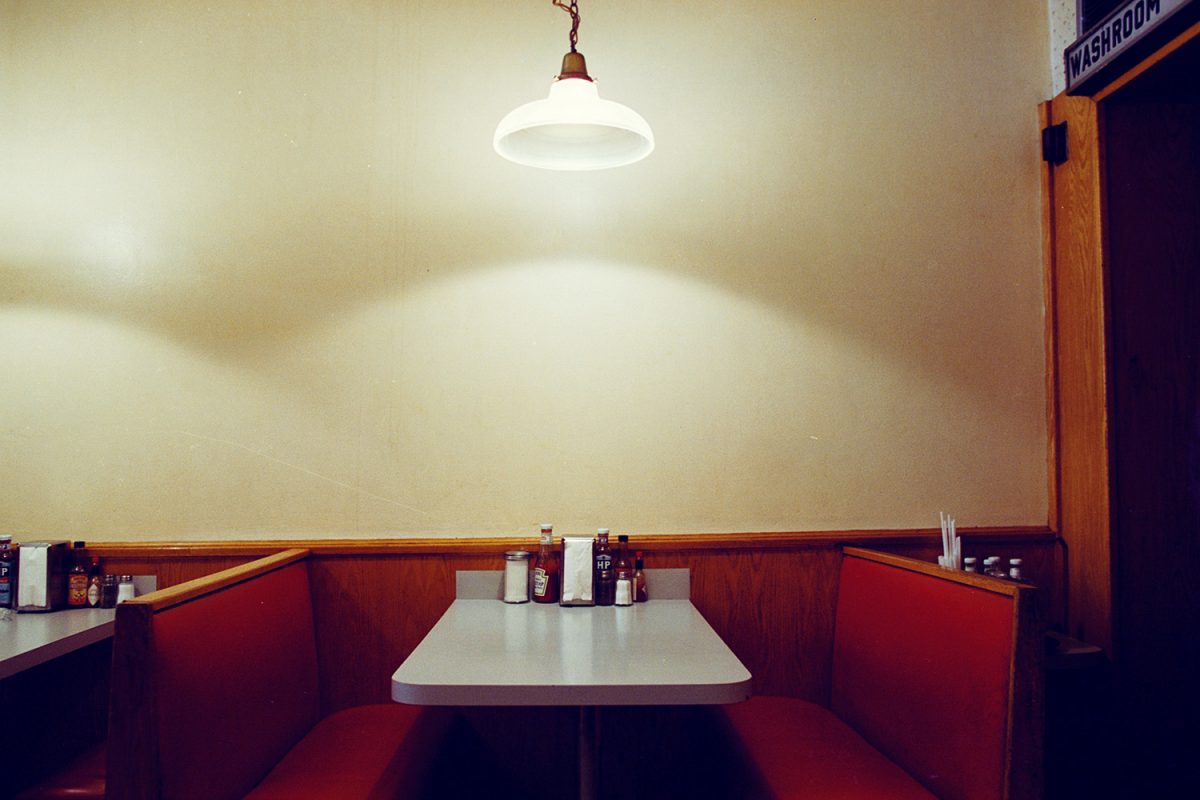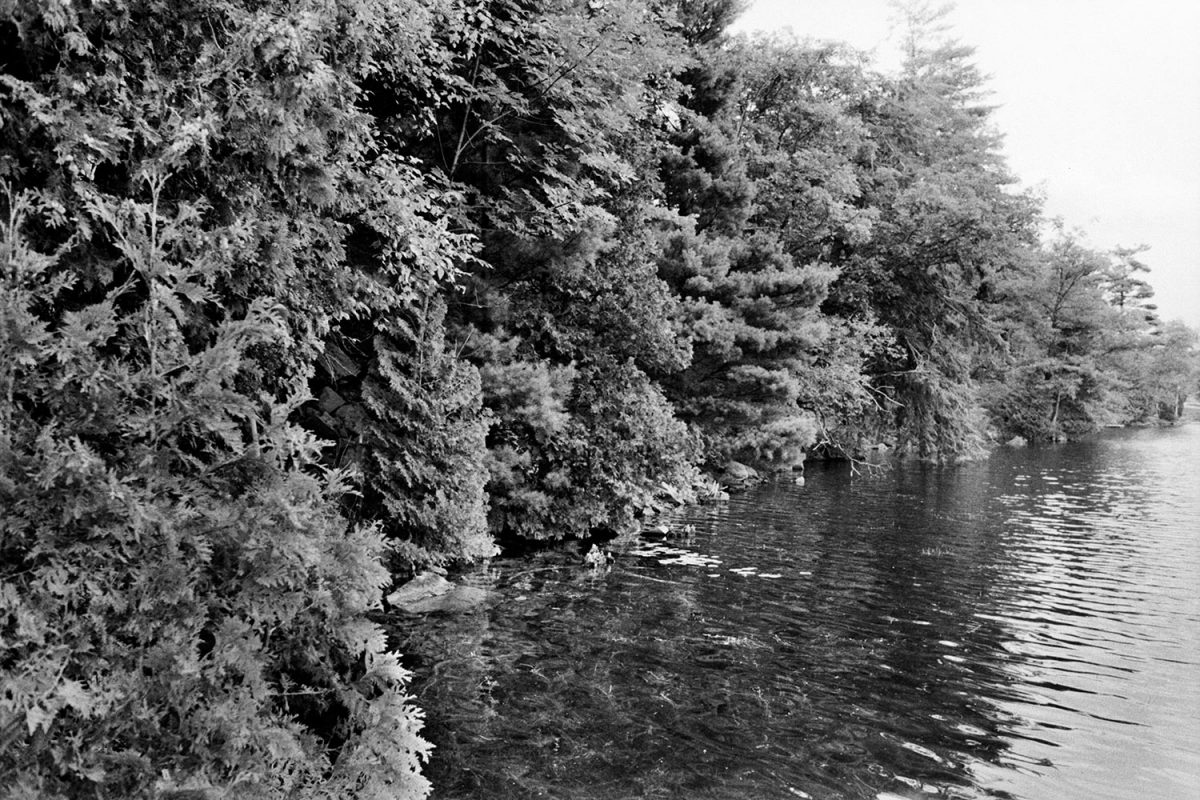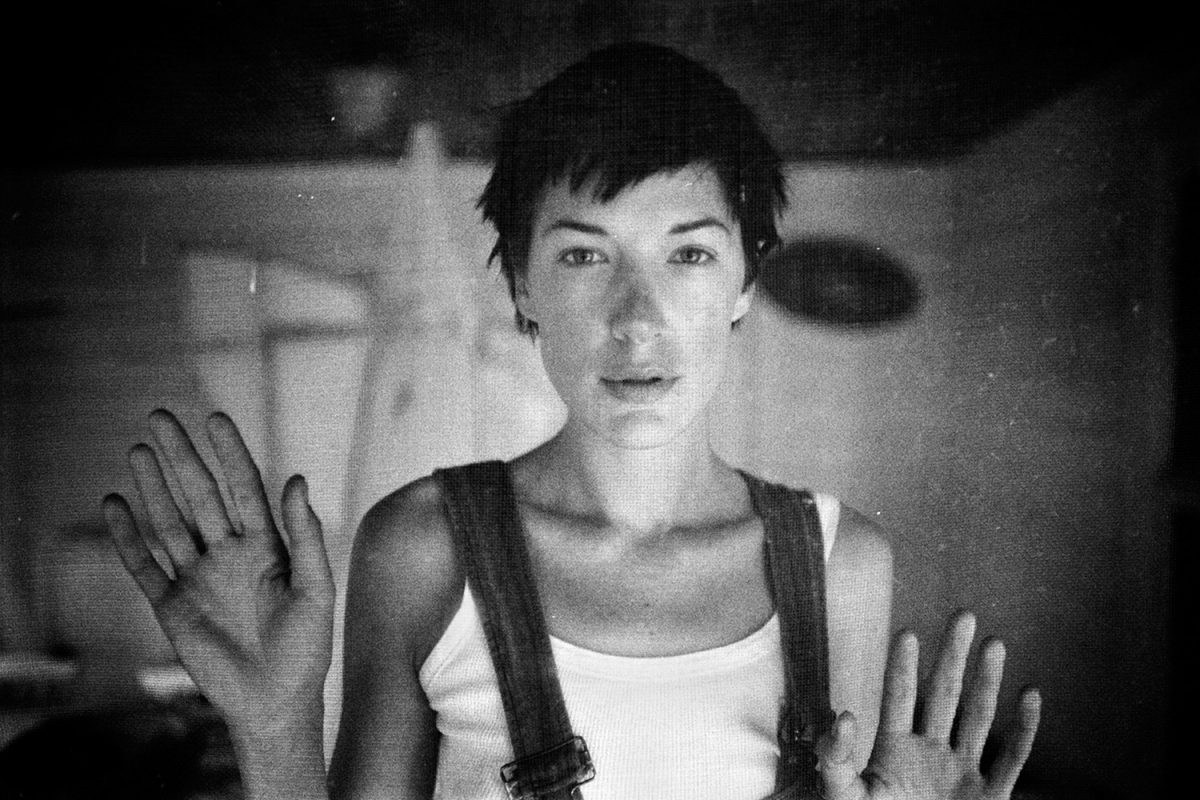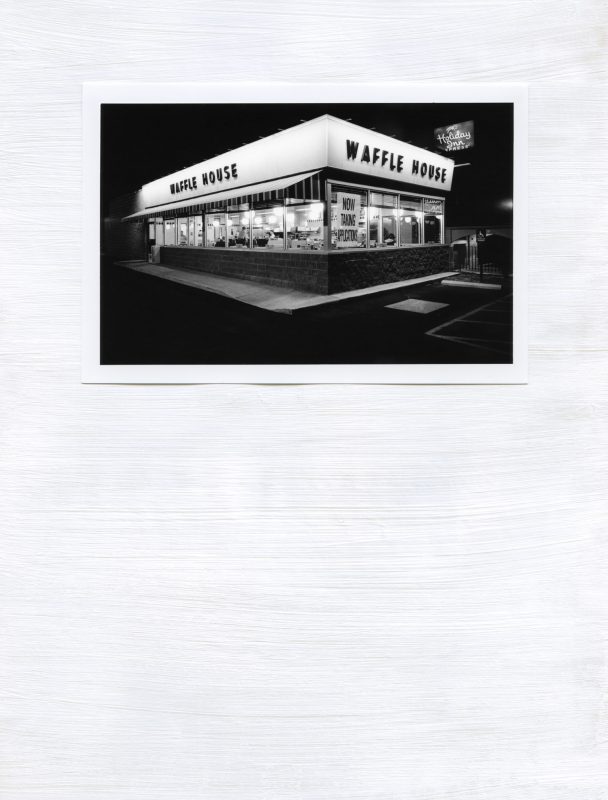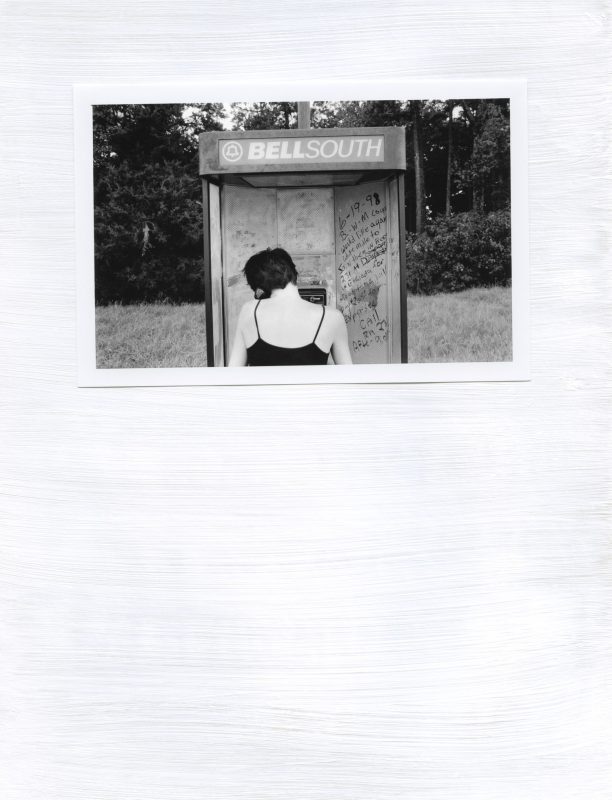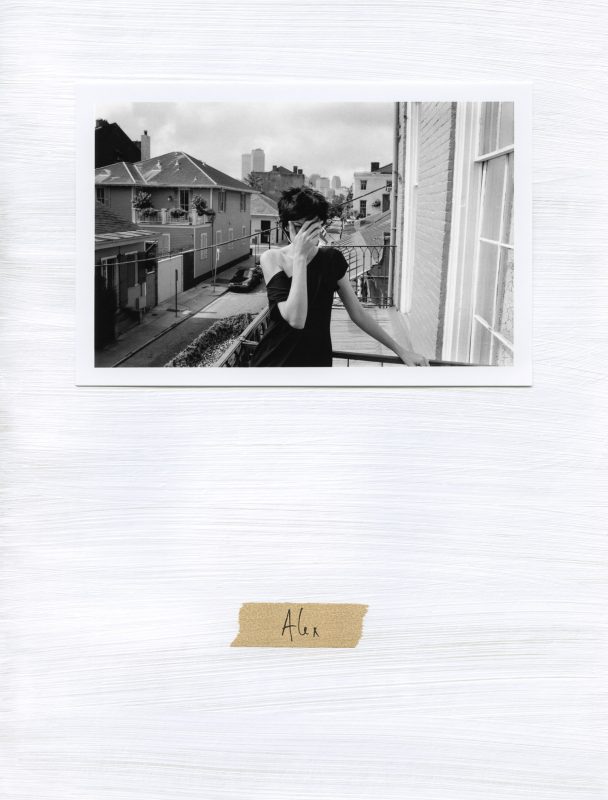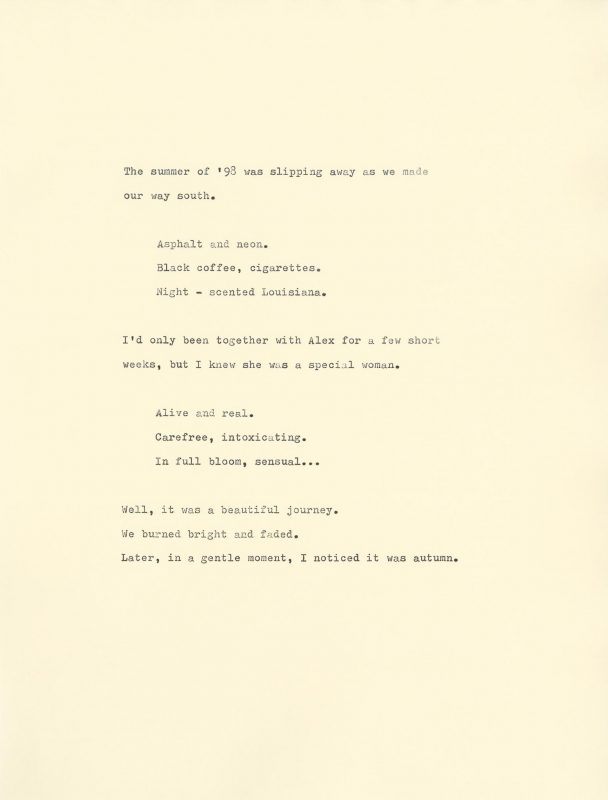James Pfaff
Alex & Me
Book review by Natasha Christia
Alex & Me is an intimate autobiographical account of a road trip and broken love affair between a man and a woman. Materialised as a refreshingly original scrapbook with a strong diaristic scent, the project is the outcome of the creative tandem between the author of the pictures, Glasgow-based photographer James Pfaff, and two women; Francesca Seravalle, who curated the concept and sequence editing of the book, and Alex, the protagonist in the story. Alex & Me reunites a series of photographs from Pfaff’s archive that were shot during a two-week roadtrip he and Alex took in September 1998 from Toronto to New Orleans and then back north to New York.
The book carries the aura of a charmingly imperfect journal. It emerges as a container of elusive feelings that seek to accommodate themselves in the present and is replete with a plethora of snapshots on the move. Car interiors, highways, gasoline stations, bars and telephone booths are all embedded alongside Alex’s vibrant portraits within the pages of a hand-painted journal. They are tainted with expressive paintbrush strokes and handwritten texts.
Pfaff originally conceived the idea for a publication back in 2007. However, his attempts to bring it to fruition had somehow not fallen into place. It was not until 2012, with Seravalle’s thought-provoking input, that Alex & Me took shape as a diary, emulating the aesthetic of a scrapbook. Seravalle encouraged Pfaff to harvest from his archives an assemblage of notebook pages and a cover originally made in 1998, yet which was never intended for publication. The journal was completed with additional material originally shot during the journey and printed in local snappy snap shops along the way. Painting and texts came afterwards as a means for Pfaff to mark his contemporary response to the work. Partially present in his previous practice, painting served as the pretext for an artistically challenging process, one that at first was met with hesitation and then with more confidence. Far from a mere illustrative companion to the pictures, colour turned into an autonomous expressive element chronicling the dust and time of a journey past: white for the fences of the American houses, blue for the packaging of the cigarettes, red for the neon lights, and black for the highway darkness and so on. The same applies to Pfaff’s evocative texts and poems. They could have been nothing but personal. Their inclusion in book renders makes for an authentic, quiet, yet totally confident universe of words and images.
Two books in one is how Pfaff likes to describe it, Alex & Me is both a book and a memorial – haunting experiences crystallised in images, colour strokes and words that claim for themselves a three-dimensional space the same way objects do. Similar to Orhan Pamuk’s Museum of Innocence – a novel and a museum created simultaneously – it fulfils its mission as an iconographical depository of artefacts, scratches, clichés and love. The print reproduction and the poem in the envelope that accompanies it confirm this worshipping penchant. Articulated in first person, it reproduces Pfaff’s gaze, subjective response and passion and as such, it instigates an intuitive, heart-felt response from the viewer. No conceptual schemes are to be encountered here; just a cumulation of raw human experience alongside infinite stories of love, sorrow and solace.
September 1998. In a parallel temporal dimension, we find ourselves on the road. The trip was destined to turn into a catalyser of stormy inner changes in our timeline. We have however no material leftovers of these stories in our drawers. But somehow, Pfaff’s pictures succeed in filling the gap; gradually, they burrow into us as our most cherished souvenirs. They invite us to think of the myriad of insignificant incidents around the world that become unexpectedly symptomatic of the changes we are going through and prepare us to confront the larger issues. From today’s perspective, both Pfaff’s intimate fictions and ours seem to have unfolded when everything was about to change. Two years later, in September 2001, the new millennium abruptly affected history’s panorama and to a great extent our faith towards Images and the way we perceive and consume them. Something was irrevocably broken. America in September 1998 offers the set for a minor story with unexpected larger connotations, before the crashing and demolition of expectations and the beginning of a new era of neo-conservatism when the two protagonists of this story followed their own destinies and paths.
From the black and white sequences of its early pages to the subsequent double spreads in colour that intensify feeling and temporality, Alex & Me reveals itself as an open-ended artistic project that defies conventional progression. As if emanating from a Jim Jarmusch film, its neo-noir aesthetic makes a contained albeit heart-breaking allusion to love without idolising or fetishising it. It also establishes loose connections with Double Blind (No Sex Last Night), a 1992 film in which Sophie Calle and Greg Shephard, equipped with separate cameras, recorded every moment of their road trip across America. But whilst Double Blind finds its raison d’être in a voyeuristic tour-de-force operated by two antagonistic cameras within the confinement of its filmic time, here the weaving of relationships, desires and fears shifts outside narration and its historical time, in a continuous real-time narrative of a life shared and in a living book-object.
Alex & Me was conceived from the beginning as an ongoing and ever-expanding project made to be repainted, re-enacted and relived not only by Pfaff himself but by many others who have been actively involved in the reshaping of its story: his muse Alex (“everything comes out of me and her”), Seravalle (“the second woman who has scrutinised the project”), the audience, and, last but not least, the book which seems to claim its own life. Pfaff now gives public performances, collaborating with it anew threw paint and words. He invests layers of his contemporary feelings onto a story in constant evolution and onto a book he describes as a painful one —“a book that took so long to make, one with real consequences for peoples’ lives”. What’s more, this ‘unfinished’ book was marked by the sudden end of a friendship. Two years before its finalisation, Alex, his muse and creative companion in this sixteen-year endeavour suddenly became reticent. She asked him not to publish.
Pfaff’s story conjures up the impossibility of letting go. It also speaks to a desperate attempt to hold on to what is relentlessly evaporating – that persistent memory that still haunts us as a ghostly manifestation of a past once lived. But it somehow manages to square up to it and enable its reincarnation in the present without falling into banal melancholy. Beyond what a conventional solid (photo)book can represent, Alex & Me is a tangible performative capsule of memory. A cathartic meta-fictional experience in tenor, it opens up the possibility of alimenting, appropriating and recreating the past, while suggesting and acknowledging new collective modes in the creative process. Alex & Me has certainly become the path for Pfaff to look back over his story and deliver it to others. Now it is no longer just his; it is here for us to see and to react to in our own way. And, perhaps this is where redemption is to be found in photography –even if only momentarily and restlessly. ♦
All images courtesy of the artist. © James Pfaff
—
Natasha Christia is a writer, curator and educator based in Barcelona.

